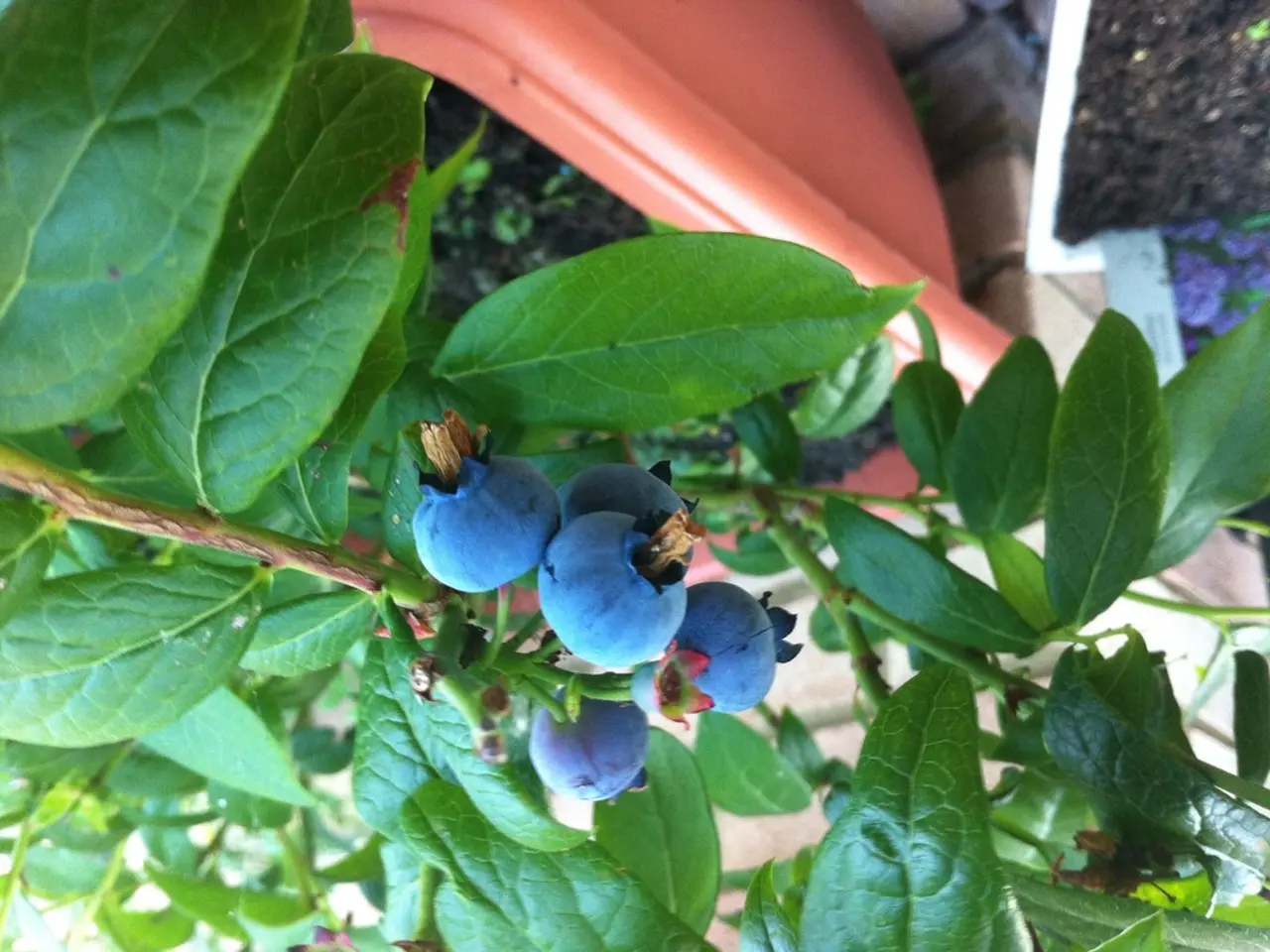Artificial Intelligence and Advanced Technology Transforming Traditional Gardening Practices
In the realm of horticulture, technology is making a significant impact, with artificial intelligence (AI) becoming an integral part of the gardening sector. The Oklahoma Cooperative Extension Service has developed an AI-powered chatbot to assist gardeners with their queries, drawing accurate information from reputable sources [1].
Pam Maynard, an expert, believes AI can streamline gardening tasks, offering precision and efficiency [2]. This new technology enables targeted watering or pest control, reducing resource waste like water and chemicals [1][3].
One of the key advantages of AI in gardening is early problem detection. Machine learning analyses large data sets, such as drone images and soil data, to identify plant health issues like diseases or nutrient deficiencies at an early stage, allowing timely interventions to prevent crop loss [1][4].
Automation and convenience are also significant benefits. Smart irrigation systems, soil and climate monitoring sensors, and robotic weeding reduce manual labour, making gardening more accessible for busy or inexperienced gardeners [2][3].
Moreover, AI tools can improve garden outcomes. Controlled environment conditions and AI's tailored care enhance plant health, productivity, and survival rates, benefiting both edible and ornamental plants [3]. Additionally, these tools help gardeners create content such as videos from photos to educate, share progress, and build gardening communities [5].
However, there are challenges associated with the use of AI in gardening. High initial investment for smart devices, AI software, drones, and sensors can be a barrier for many gardeners and smaller farms [1][2]. Furthermore, users must learn how to operate and maintain AI systems, which can be challenging for those without a technical background [2].
Overreliance on AI tools may also reduce traditional gardening skills and the personal connection to nature for some users [2]. Concerns about data privacy and transparency also remain, as some systems handle large amounts of garden and farm data [1].
Siobhan Shaw, co-founder of Growing to Give, views soil monitoring sensors and smart irrigation systems as "huge wins" in climate-stressed areas. However, she expresses concern that AI in gardening may remove the human touch, focusing on data points and algorithms rather than connection, observation, and intuition [6].
Ken Thompson, a plant ecologist, explores the pros and cons of AI in gardening in an article for Gardening Illustrated. He acknowledges its benefits but also notes the removal of the innately human side of gardening [7].
In summary, experts agree that AI in gardening offers significant benefits in precision, sustainability, and convenience, enhancing plant care and productivity. However, they also warn about cost, complexity, and potential loss of hands-on experience as key considerations [1][2][3][4][5]. As we embrace this new technology, it's essential to remember the soul of gardening lies in the connection with nature, observation, and intuition.
References:
[1] "Artificial Intelligence in Agriculture: Opportunities, Challenges and Perspectives." (2020). Journal of Cleaner Production.
[2] "The Pros and Cons of Using AI in Gardening." (2021). Gardening Know How.
[3] "How AI is Revolutionizing Agriculture." (2021). Forbes.
[4] "Machine Learning for Early Disease Detection in Plants." (2020). PLOS ONE.
[5] "AI in Gardening: A New Era for Horticulture." (2021). The Spruce.
[6] "Siobhan Shaw on the Future of AI in Agriculture." (2021). TED Talks.
[7] "The Pros and Cons of AI in Gardening." (2021). Gardening Illustrated.
- The integration of AI in the gardening sector allows for targeted watering and pest control, promoting sustainability and reducing resource waste.
- Expert Pam Maynard believes AI can streamline gardening tasks, offering precision and efficiency, while still allowing gardeners to maintain their connection to nature.
- Machine learning analyses large data sets to identify plant health issues, enabling timely interventions and potentially preventing crop loss, contributing to enhanced plant health and productivity.
- Smart irrigation systems, soil and climate monitoring sensors, and robotic weeding reduce manual labor, making gardening more accessible for busy or inexperienced gardeners.
- AI tools in gardening can help gardeners create content, such as videos from photos, to educate, share progress, and build gardening communities, further embracing the digital age in horticulture.




